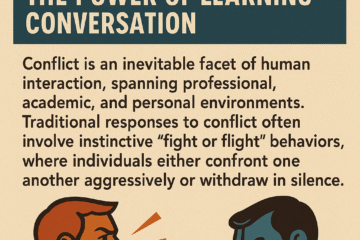Lesallan | April 3, 2025
“The Contrast of Wisdom and Folly”

THE CONTRAST OF WISDOM AND FOLLY
The book of Ecclesiastes in the ESV wrestles with the ambivalence of wisdom. It lays out a nuanced picture: while wisdom is decidedly preferable to folly—offering insight, guidance, and a kind of protection in navigating life’s uncertainties, it also carries a weight. The wise see life’s imperfections, vanities, and inevitabilities, and thus their understanding often brings sorrow alongside discernment.
For example, Ecclesiastes (ESV) draws a direct comparison by noting that wisdom is as much a light as it is a burden. In several passages, the writer reflects on how increasing understanding or knowledge does not necessarily lead to joy; rather, it intensifies the awareness of life’s fleeting and sometimes unsatisfactory nature. In this contrast, folly may offer temporary, less painful ignorance, but it ultimately leads one astray from making decisions that could afford protection or insight. Yet, the paradox remains—regardless of the path taken, both the wise and the foolish meet the same inevitable end, emphasizing the limitations of human endeavors.
In essence, Ecclesiastes suggests that while wisdom sharpens our perception and can help us navigate life with a clearer sense of direction, it also opens our eyes to life’s inherent uncertainties and vanities. This duality is not an argument against seeking wisdom but an invitation to embrace its benefits while accepting the accompanying burdens. The message encourages readers to evaluate their pursuits considering life’s impermanence, finding a balance between striving for insight and acknowledging life’s unpredictable nature.
There is much more to explore here—for instance, how this tension between the gift of perception and its accompanying grief echoes throughout other wisdom literature, like Proverbs, or even modern reflections on knowledge and uncertainty.
Lesallan | April 3, 2025



14 Comments
Ima Ozimek · April 10, 2025 at 2:49 pm
WONDERFUL Post.thanks for share..extra wait .. …
Free AI sex chat · April 16, 2025 at 1:37 pm
I just couldn’t depart your web site before suggesting that I actually enjoyed the usual info an individual supply to your visitors? Is gonna be back frequently in order to investigate cross-check new posts
Ethical hacking training programs · April 16, 2025 at 1:51 pm
I’d have to test with you here. Which is not something I normally do! I get pleasure from reading a submit that will make folks think. Additionally, thanks for permitting me to comment!
Senix Outdoor Power Tools · April 16, 2025 at 4:04 pm
I?¦ve been exploring for a bit for any high-quality articles or blog posts on this kind of house . Exploring in Yahoo I eventually stumbled upon this website. Reading this information So i am happy to convey that I’ve a very good uncanny feeling I discovered exactly what I needed. I so much certainly will make sure to do not forget this website and provides it a look on a relentless basis.
omaslot · April 16, 2025 at 5:13 pm
Great write-up, I am regular visitor of one’s web site, maintain up the nice operate, and It’s going to be a regular visitor for a lengthy time.
hydro deep repair hair treatment · April 16, 2025 at 6:31 pm
I’ve been surfing on-line greater than three hours lately, yet I by no means found any fascinating article like yours. It is lovely worth enough for me. In my view, if all website owners and bloggers made excellent content as you probably did, the net will be much more helpful than ever before.
Ethical hacking certifications · April 16, 2025 at 7:26 pm
Howdy! This is my first visit to your blog! We are a collection of volunteers and starting a new project in a community in the same niche. Your blog provided us valuable information to work on. You have done a outstanding job!
workflow · April 16, 2025 at 11:36 pm
Hello this is kind of of off topic but I was wondering if blogs use WYSIWYG editors or if you have to manually code with HTML. I’m starting a blog soon but have no coding skills so I wanted to get advice from someone with experience. Any help would be greatly appreciated!
Mitolyn · April 17, 2025 at 12:45 am
Some truly great info , Sword lily I observed this. “Always be ready to speak your mind and a base man will avoid you.” by William Blake.
Mitolyn · April 17, 2025 at 3:49 am
I like looking at and I conceive this website got some truly useful stuff on it! .
https://www.retail-media.co.il/ · April 17, 2025 at 3:57 am
Very interesting points you have remarked, thankyou for putting up.
alcohol addiction · April 17, 2025 at 6:57 am
I really like your blog.. very nice colors & theme. Did you make this website yourself or did you hire someone to do it for you? Plz answer back as I’m looking to create my own blog and would like to find out where u got this from. thanks a lot
quitsmokinghabit · April 17, 2025 at 8:08 am
Thank you for sharing with us, I conceive this website really stands out : D.
recuperación de puntos en torre pacheco · April 17, 2025 at 10:23 am
Some times its a pain in the ass to read what website owners wrote but this website is rattling user friendly! .
Comments are closed.